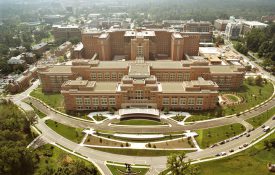-
The Most Dangerous Way to Lose Yourself
When John F. Kennedy was 17, he was part of a prank club. At Connecticut’s elite Choate school in 1935, word spread that the group was planning to pile horse manure in the gymnasium. Before this “prank” could happen, the school’s headmaster confronted the troublesome boys. The scheme was the culmination of a list of offenses at the school, and young Kennedy was expelled. Though the sentence was eventually reduced to probation, the headmaster suggested that Kennedy see a “gland specialist” to help him “overcome this strange childishness.” The doctor Kennedy ended up seeing was Prescott Lecky, a young, mutton-chopped psychologist.
-

Innovative Addiction Treatments Hold Promise for Stemming the Opioid Crisis
In a new issue of Psychological Science in the Public Interest, researchers propose novel treatment strategies, based on advances in brain science, that could help prevent abuse of opioids and other drugs.
-

Future Funding Opportunities from the National Institute of Mental Health
The National Institute of Mental Health (NIMH) has announced a set of areas of interest that will inform future funding opportunities offered by the institute. These new concept clearances may serve as the basis for
-

Russell Sage Foundation Offering Early and Mid-Career Grants
Early and mid-career professors of psychological science are encouraged to apply for the Pipeline Grant Competition. The integrative grant supports tenure-track assistant professors and associate professors who propose research projects aligned with the Russell Sage Foundation mission, which is to improve social and living conditions in the US.
-

Roundup of NIH Research Career Development Award Resources
NIH awardees or applicants interested in NIH Career Development (K) awards can use these resources as a starting point to getting answers to their funding questions.
-

New Research From Psychological Science
A sample of research exploring effects of hypnotic suggestion on implicit attitudes and ways to enhance children’s understanding of scientific models.

